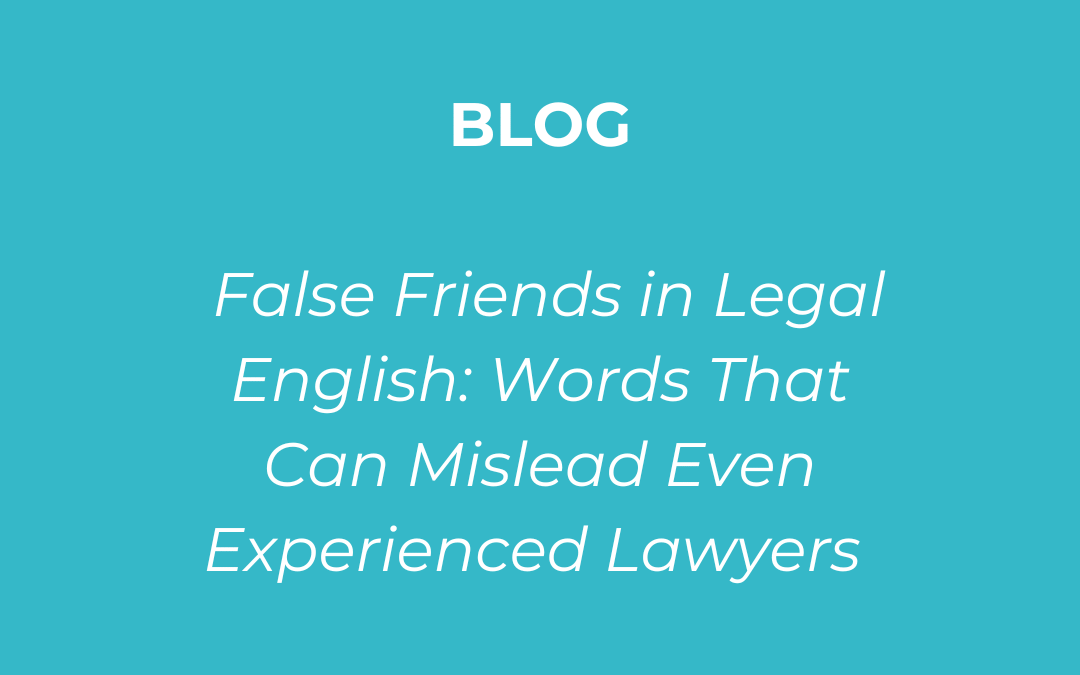Blog Post #4 – False Friends in Legal English: Words That Can Mislead Even Experienced Lawyers
When lawyers in Brazil use English professionally, they often feel confident with core vocabulary, until a “false friend” trips them up. These are words that look familiar but have a different meaning in legal English than in Brazilian Portuguese.
The risk isn’t just linguistic embarrassment. In contracts, pleadings, or client communication, a misinterpreted word can change the intended meaning, cause confusion, or even lead to a dispute.
Common False Friends in Legal Contexts
Here are a few that I frequently see causing problems:
- Provision– In legal English, this means a clause in a contract or statute (The provision on liability is in Section 5). It does not mean fornecimento.
- Action– In legal usage, this refers to a lawsuit or legal proceeding (They filed an action in the High Court), not any type of “ação” in general.
- Injunction– A court order to do or stop doing something, not injunção in the everyday Portuguese sense.
- Eventual– In English, “possible” or “potential,” not eventual meaning “final.”
- Pretend– “To act as if,” not pretender meaning “to intend.”
Why Context Matters
False friends are especially dangerous in legal work because meaning is tied to jurisdiction, practice area, and even audience. A term might be interpreted one way by a U.S. lawyer, another way by a UK lawyer, and yet another by a client who learned English in a different field.
When drafting, negotiating, or explaining a document, always pause to confirm the meaning in the legal context, not just the general one. And remember: legal English is also shaped by the culture you are writing for — a clause written for an American business contract may read differently than one for an English court filing.
Legal English Tip of the Week – Verify Before You Use
Whenever you encounter a “familiar” English word, especially in a high-stakes legal document:
- Check a legal dictionary (like Black’s Law Dictionary or theOxford Dictionary of Law).
- Compare usage in a trusted legal text or precedent from the relevant jurisdiction.
- If in doubt, rephrase to avoid ambiguity.
Expert Tip: Keep a personal list of false friends you’ve encountered. Reviewing them regularly will reduce mistakes and increase your drafting confidence.
Whether you’re refining your own skills or training a team, building awareness of false friends is a fast way to improve clarity and reduce risk in legal communication.
If you’d like to work on this, or other practical aspects of Legal English, I’d be happy to help.
